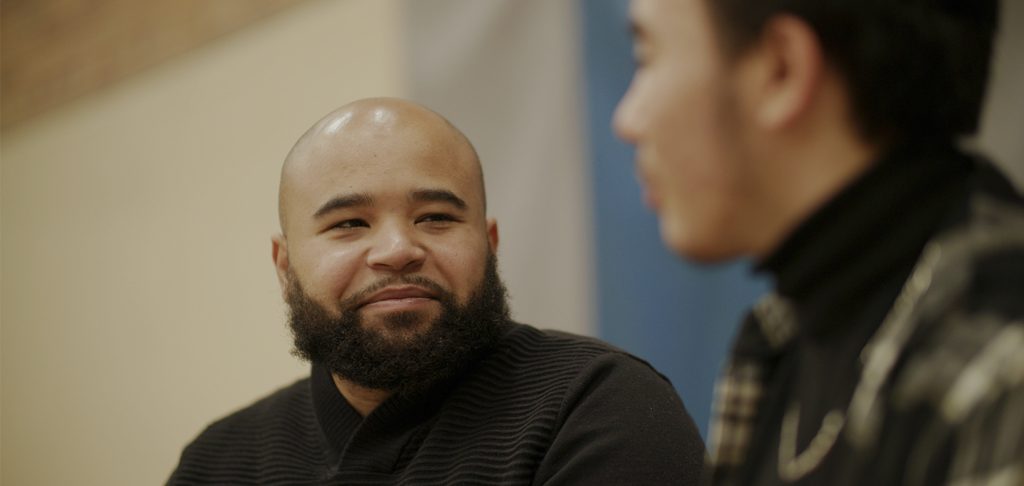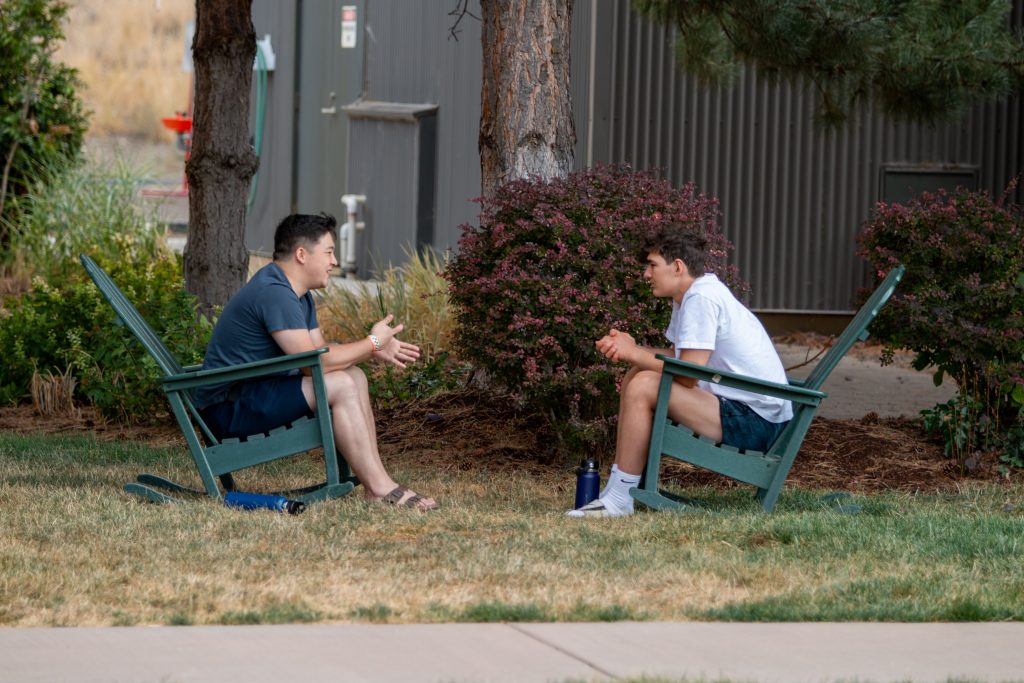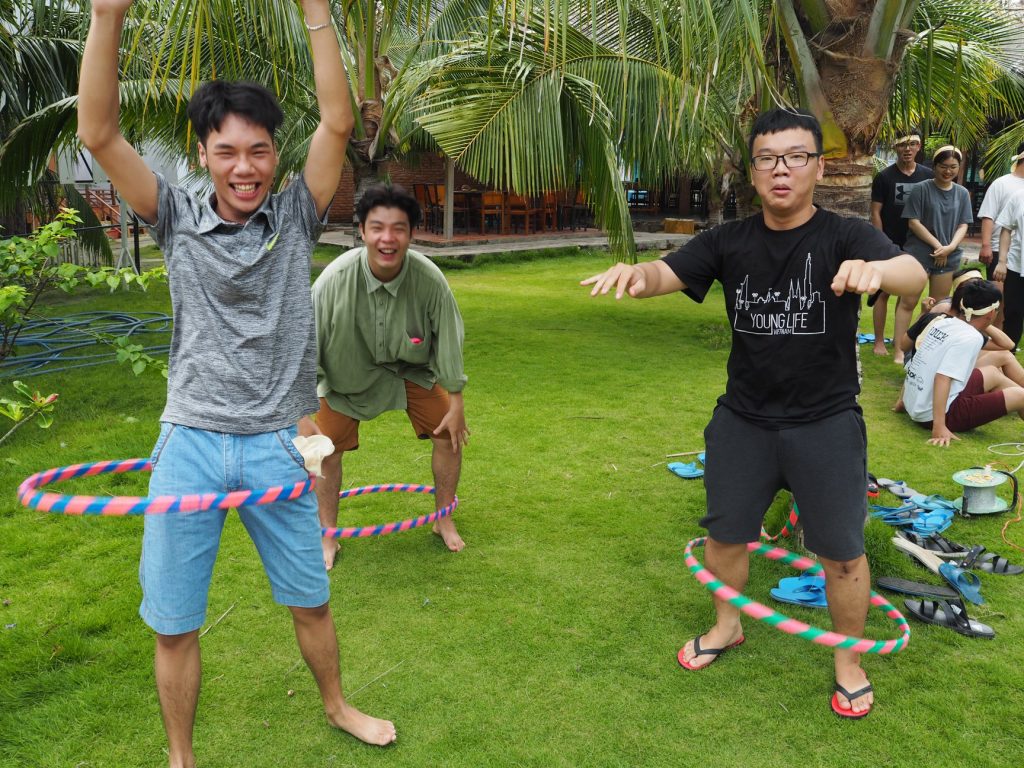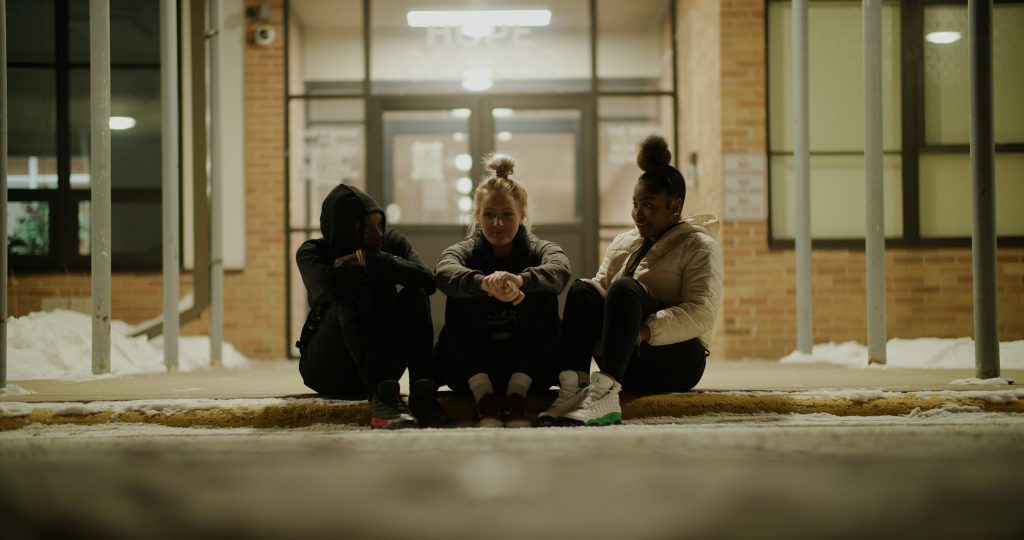Summertime in the South means countless hours splashing at the pool, the air smelling sweet with the scent of honeysuckles and gardenias, and lightning bugs waltzing around as the sky turns from dusk to dark.
It means the days are longer and warmer and bedtimes for my kids are later. We spend more time outside and harvest veggies from our garden. We pick wildflowers and eat sweet juicy watermelon on our big front porch.
But summer is not without its fair share of things that I dislike. Like the suffocating humidity, the tenacious mosquitoes, and the sky-rocketing power bills. It sometimes feels like it’s so hot outside that I’m walking on the surface of the sun. But what I enjoy most is how often I get to gather friends and family for meals and backyard barbeques.
Summer is a season of connecting. It’s when we spend the most time on our screened-in back porch with frosty glasses of iced tea in hand. It feels more relaxed and carefree — like it’s a season made for hospitality.
I used to be someone who stressed about having guests over, regardless of the season. Whether it was new friends or my in-laws who live an hour away, I’d go into full panic mode preparing for them to come over.
My husband and kids would do their best to stay out of the way as I became a frenzy of vacuuming, wiping off countertops, shoving clutter into closets, and hoping our guests wouldn’t notice the tiny trail of handprints marching up the wall along the staircase.
Having a clean home and picture-worthy meals made me feel good about myself as a hostess. But the more I hosted, the more I became hyper-focused on matching placemats and wide spreads of food and if I’d have enough conversation topics to avoid awkward silences.
I was always exhausted after having company over. But I took pride in the compliments from our guests. Slowly but surely, I began deriving my self-worth from how well I felt a get-together had been. Long awkward pauses when new friends were over? Maybe we weren’t fun enough for them. Someone didn’t eat all their food? It was probably my fault for not picking a recipe that everyone loved.
No wonder I was exhausted as I crawled into bed at the end of the day!
After joining the Young Life Field Events team, I realized my definition of hospitality was backwards. What mattered more than matching placemats and Instagram-worthy food spreads was how our guests felt after they’d been with us. Would they remember if there were smudges on our window sills from sticky toddler hands? Maybe. But what they would remember most was the feeling of being in a safe space where they felt heard and known and cared for.
It was like a switch flipped for me. I started putting people first and leaving perfection aside; it doesn’t exist in this life anyway.
I started creating margin in my day before guests came so I’d have time to slow down and recharge and give them my best instead of frazzled me. I focused more on how friends and family would feel after they left our home. Did they feel seen and safe after being with us? My prayer was that they did.
In our frazzled, stressed-out world today, the next generations (Generation Z and Gen Alpha) carry the weight of feeling they must achieve to be special. They, too, are fed the lie that their value is based on near-perfect results — in school, in sports, at work, in the way they present themselves on social media.
They need to know that they can show up just as they are, because that’s how Jesus loves them — just as they are.
How do we do this? You’ve probably guessed it by now: we create safe spaces for them where they feel comfortable and free to let down their walls. It’s a scary thing to be truly known. It takes a lot of courage to let someone else — especially a stranger — see you for who you are, but the risk is worth it.
The depth of relationship that can be had on the other side of that vulnerability is worth it. The confidence and joy that come with being known and loved for who you are is like no other. It’s what Jesus came to give us, and it’s what we adults get to mirror for the next generation as we walk with them on their journey to adulthood.
So, how do we create safe spaces for Generation Z and Generation Alpha?
1. Establish Trust
In Young Life, we talk about “earning the right to be heard.” The same is true if we expect teens to open up to us. We must earn the right to visit what’s behind their most fortified walls. This happens when we actively listen to them. It comes when we respect their privacy. The walls will start to fall when we follow through on our word and are vulnerable about our fears and failures.
2. Set Clear Boundaries
Sadly, too many of us are familiar with having something private or personal shared with someone it wasn’t meant for. The last thing a teenager needs is for this to happen with an adult they trust. Be clear with them and communicate that what is said between you — unless it involves their safety or the safety of someone else – stays between you. Tell them if there’s anything you feel should not be discussed or should be shared instead with a parent or pastor. They’ll appreciate your clarity and straightforwardness.
3. Respect Their Privacy
If a kid gets the sense that you’re snooping or being intrusive, they’ll start to question your intentions and likely rebuild those walls that were starting to come down. If they’re not ready to share something with you, that’s OK. Maybe they need to hear some of your story to feel more comfortable opening up to you. Or maybe they just need more time. Both are part of building lasting, meaningful relationships and are worth how long it takes.
4. Celebrate Diversity
When teens feel free to be themselves, a beautiful thing happens. The uniqueness of their God-given personalities shine, and any lies of inadequacy are hushed. When we look at the life of Christ, we see that he was surrounded by diversity wherever he went. His immediate followers included fishermen, a zealot, and a tax collector. Their personalities ranged from bold and impulsive, to skeptical, shy, and eventually untrustworthy (hey, Judas).
Despite their differences, Jesus created spaces where they felt free to ask questions, voice their opinions, and grow at their own pace.
He never shamed them for their shortcomings, but he called them to be like him. He forgave even the most egregious of betrayals (looking at you again, Judas). When we provide spaces for Generations Z and Alpha to celebrate their diversity, we call them to be more like Christ and love others the way he loves us!
5. Model Emotional Well-Being
The middle school and high school years can be incredibly challenging for teens. The pressure to succeed academically, athletically, or socially can be overwhelming. Sadly, it’s also a vulnerable time for mental health issues. Anxiety, depression, eating disorders, and substance abuse tend to crop up during these years. But a trusted, safe adult can mean the difference between years of sustained hurt and a helping hand out of a deep, dark pit of isolation and pain.
Whether we want them to or not, the next generation is watching us. They see the way we regulate our emotions, resolve conflict, cope with stress, and ask for help. They notice the way we take care of ourselves and set good boundaries and focus on spiritual disciplines. Taking care of our own emotional well-being is perhaps the most important piece of creating safe spaces for teens.
Taking care of my emotional well-being is what shifted the way I welcomed guests into my home. For me, it meant incorporating rest, meditating on truth, and saying no to some things so that I could have more time to prepare for guests without feeling rushed or overwhelmed. These practices flowed into other areas of my life and transformed the way I showed up for the high school small group that I lead each week at church.
It changed the way I prioritize my family and friends and free time on the weekends. It meant slowing down and cutting out a lot of excess that I’d been lugging around with me. Things like caring too much about what others thought of me, spending long hours on social media, or watching Netflix shows that would make even Judas (sorry, buddy) cringe.
It meant bringing my best to the table and not worrying about whether all the placemats matched, or if the food was under-salted. I was able to lean deeper into conversations with friends and family and build deeper connections with the people across from me. I felt fuller at the end of the night, rather than exhausted.
So, whether it’s summertime and your days are longer and evenings are spent chasing lightning bugs with your kids, or you’re bracing for the chill and shorter days of winter, you can create safe spaces for the teens in your life. You don’t have to be perfect or know how to make the perfect charcuterie board.
Gen Zers and Generation Alpha need adults who are willing to show up and listen. They want consistent, trustworthy adults who celebrate their diverse backgrounds and interests and who make them feel seen and known.
They need to hear that they are loved. They need to know that their ideas and questions matter. They need to know they’re heard by someone who cares about them — just the way they are.
To learn more about Young Life’s research on Generation Z and Gen Alpha, and to download your own copy of The RELATE Project report, click here.
To become one of the thousands of trusted adults in Young Life’s volunteer network, or to find out how to connect with Young Life in your area, click here!






